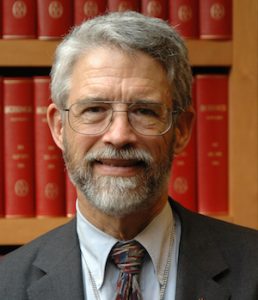Former Obama Science Advisor John P. Holdren to Speak at WCSJ2017
John P. Holdren, an authority on climate change science and policy who served two terms as President Obama’s science advisor, will deliver a major address to international science journalists, urging global investments in cost-effective remedies to avoid the worst impacts of future climate change. He will speak on October 26, the opening afternoon of the 10th World Conference of Science Journalists in San Francisco, CA.
Holdren’s talk, titled “Why the Wafflers Are Wrong: Addressing Climate Change Is Urgent—And A Bargain,” will offer a sharp rebuke to defenders of the status quo, particularly those who argue that measures to sharply reduce the emissions of greenhouse gases would cost too much, kill jobs, and stifle economic growth economic growth, said Holdren. President Trump used this argument recently in announcing that he would withdraw the United States from the 2015 Paris global climate agreement.

John P. Holdren
“Investing in the increasingly cost-effective measures for avoiding the worst impacts of future climate change is a far better ‘deal’ for society than suffering the consequences of inaction,” said Holdren. He sees a shift under way in which outright denial of climate science is being superseded by “waffling” about how much change in global climate is attributable to human activities and statements minimizing the impact of fossil fuel burning and other sources of greenhouse gas emissions.
“This talk will explain why the wafflers are wrong⎯-how we know that emissions from human activities are responsible for essentially all of the rapid warming now being experienced; how the impacts are already worse than the wafflers contend; why those impacts are likely to worsen much further and faster than they think,” said Holdren, who served as science advisor to President Obama from 2009 to early 2017, the longest to serve in that post.
Holdren played a key role in developing the Obama Administration’s national and international climate policy. He was also the Senate-confirmed Director of the White House Office of Science and Technology Policy (OSTP). In February, Holdren returned to Harvard University as the Teresa & John Heinz Professor of Environmental Policy at the Kennedy School of Government, and professor of environmental science and policy in the Department of Earth & Planetary Sciences. He is also co-director of the Science, Technology, and Public Policy Program at the HKS Belfer Center for Science and International Affairs.
Long recognized as an authority on climate change science and policy, Holdren is also Senior Advisor to the Director at the independent, nonprofit Woods Hole Research Center, which he directed from 2005 through 2008. He is a member of the U.S. National Academy of Sciences, the U.S. National Academy of Engineering, the American Philosophical Society, the American Academy of Arts and Sciences, and the Council on Foreign Relations, as well as a foreign member of the Royal Society of London and the Indian National Academy of Engineering. He was one of the first winners of a MacArthur Foundation Prize Fellowship (1981) and is a former president of the American Association for the Advancement of Science (2006-07).
The 10th World Conference of Science Journalists, the first to be held in the U.S., will feature a program encompassing professional development, leading-edge research, and issues in science and journalism. The five-day meeting, to be held October 26-30, will include numerous sessions involving climate, environment and sustainability, as well as other topics in global health; technology and innovation; Latin America and the Caribbean; and issues in science and science journalism.
Other climate and environment sessions at the conference will focus on the challenges of reporting on border-crossing, slow-moving stories such as climate and environmental destruction; the state of the oceans; managing the earth’s microbiome; the human ethics of global crisis reporting; indigenous voices; and how climate change is having economic impacts at multiple scales. Excursions will take attendees into the field for an up-close view of research into coastal hazards, marine animal conservation, energy innovation, redwood forests, ocean acidification and other important environmental topics.
The conference is produced by the U.S. National Association of Science Writers (NASW) and the Council for the Advancement of Science Writing (CASW), in partnership with the World Federation of Science Journalists, which represents more than 50 science journalist organizations from around the world. Host universities are the University of California, Berkeley (UC-Berkeley) and the University of California, San Francisco (UCSF).
